Stavros Tornes
Nacimiento : 1932-01-01, Athens, Greece
Muerte : 1988-07-26
Historia
Stavros Tornes was born in 1932 in Athens, Greece. He was an actor and director, known for Karkalou (1984), Balamos (1982) and Thiraikos orthros (1968). He died in 1988 in Athens.

A film director, his relationships with women and the expression of his bitterly emotions about cinema and Greece

archive footage
"The Poor Hunter of the South" is the title of the film Stavros Tornes never got to make, rightfully featured alongside his name on this documentary by Stavros Kaplanidis ("Canteen", "Play it Again, Christos"). The film traces his imagery, listens for his whispers and infiltrates the memories of his closest friends, looking for clues in order to piece together the portrait of a filmmaker who made something out of nothing and stayed true to himself and his vision until the very end. Besides Tornes' own films, this documentary includes footage from films where the "poor hunter" appeared as an actor, like "The Secret of the Red Cloak" by Kostas Fotinos, "Kierion" by Dimos Theos and " Allonsanfan" by Paolo and Vittorio Taviani.

Writer
The chronicle of Loukas Kostoglou, a publisher devoted to poetry, and Marios, his assistant, who is love with Nina.

Director
The chronicle of Loukas Kostoglou, a publisher devoted to poetry, and Marios, his assistant, who is love with Nina.

Producer
The chronicle of Loukas Kostoglou, a publisher devoted to poetry, and Marios, his assistant, who is love with Nina.

Polydoros
The chronicle of Loukas Kostoglou, a publisher devoted to poetry, and Marios, his assistant, who is love with Nina.

Producer
The portrait of an Andalusian musician who wanders around Epirus and socializes with the strangest characters in the area.

Writer
The portrait of an Andalusian musician who wanders around Epirus and socializes with the strangest characters in the area.

Director
The portrait of an Andalusian musician who wanders around Epirus and socializes with the strangest characters in the area.

Fox Man
The portrait of an Andalusian musician who wanders around Epirus and socializes with the strangest characters in the area.

Geropeismataris
During its 85-minute running time, this jarring experimental film takes a no-holds-barred look at the way women have been treated and depicted in Western art.
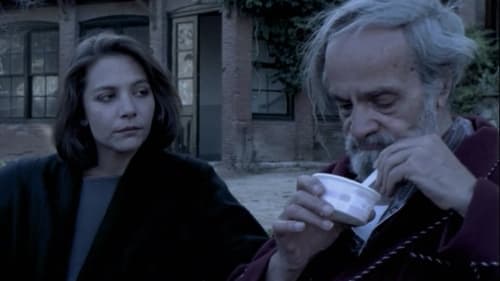
Old Man in the Corridor
An actor's troupe puts up a variety show.

Producer
In this avant-garde look at a series of unique or eccentric men and women, director Stavros Tornes has created a film that is visually engaging, but too obscure in many points to be understood. The main protagonists are a young taxi driver -- a man who has had some very unusual, puzzling, and inspirational experiences -- and a middle-aged painter he gains as a new friend. The two men are complemented by a few tough women (all played by the same actress), a pair of verbose politicos, and a handful of other distinctive characters. By the end of the movie, transformations are in store for the pair of friends, reflecting the tenor of the film throughout. ~ Eleanor Mannikka, Rovi

Screenplay
In this avant-garde look at a series of unique or eccentric men and women, director Stavros Tornes has created a film that is visually engaging, but too obscure in many points to be understood. The main protagonists are a young taxi driver -- a man who has had some very unusual, puzzling, and inspirational experiences -- and a middle-aged painter he gains as a new friend. The two men are complemented by a few tough women (all played by the same actress), a pair of verbose politicos, and a handful of other distinctive characters. By the end of the movie, transformations are in store for the pair of friends, reflecting the tenor of the film throughout. ~ Eleanor Mannikka, Rovi

Director
In this avant-garde look at a series of unique or eccentric men and women, director Stavros Tornes has created a film that is visually engaging, but too obscure in many points to be understood. The main protagonists are a young taxi driver -- a man who has had some very unusual, puzzling, and inspirational experiences -- and a middle-aged painter he gains as a new friend. The two men are complemented by a few tough women (all played by the same actress), a pair of verbose politicos, and a handful of other distinctive characters. By the end of the movie, transformations are in store for the pair of friends, reflecting the tenor of the film throughout. ~ Eleanor Mannikka, Rovi

Remake of Jean-Pierre Melville's "Le Doulos."

Producer
In order to buy a horse, a man wanders in the bazaars of Thessaly. His journey will take him further than he imagines, as old prophets, forgotten witches and vampire princes will find himself on his way.

Writer
In order to buy a horse, a man wanders in the bazaars of Thessaly. His journey will take him further than he imagines, as old prophets, forgotten witches and vampire princes will find himself on his way.

Director
In order to buy a horse, a man wanders in the bazaars of Thessaly. His journey will take him further than he imagines, as old prophets, forgotten witches and vampire princes will find himself on his way.

Balamos
In order to buy a horse, a man wanders in the bazaars of Thessaly. His journey will take him further than he imagines, as old prophets, forgotten witches and vampire princes will find himself on his way.

Cinematography
Stavros Tornes' last film in Italy bears a title that fits the director like a glove, especially when it comes to his ability to start out from a non-fiction perspective and descend into full-blown fantasy. A boat going up the river, a fire in the heart of the city and a man wondering around the volcanic slopes of Mount Etna, are some of the elements that comprise "Eksopragmatiko", a mournful movie (according to the director), which requires viewers to keep an open mind and an open heart.

Writer
Stavros Tornes' last film in Italy bears a title that fits the director like a glove, especially when it comes to his ability to start out from a non-fiction perspective and descend into full-blown fantasy. A boat going up the river, a fire in the heart of the city and a man wondering around the volcanic slopes of Mount Etna, are some of the elements that comprise "Eksopragmatiko", a mournful movie (according to the director), which requires viewers to keep an open mind and an open heart.

Director
Stavros Tornes' last film in Italy bears a title that fits the director like a glove, especially when it comes to his ability to start out from a non-fiction perspective and descend into full-blown fantasy. A boat going up the river, a fire in the heart of the city and a man wondering around the volcanic slopes of Mount Etna, are some of the elements that comprise "Eksopragmatiko", a mournful movie (according to the director), which requires viewers to keep an open mind and an open heart.
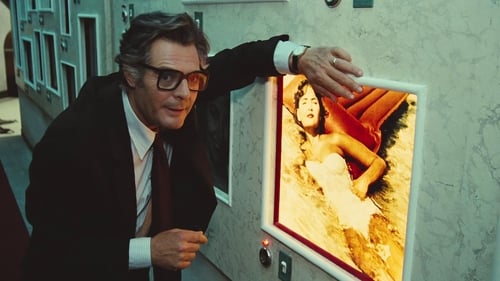
(uncredited)
Relato de un hombre soñador en un mundo poblado de mujeres de toda condición.
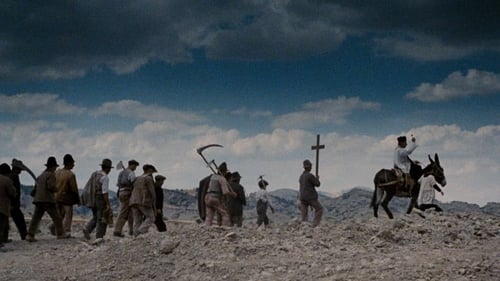
Basada en una novela autobiográfica de Carlo Levi ("Cristo si è fermato a Eboli"), destacado escritor y pintor antifascista que, en 1935, acusado de conspirar contra el régimen de Mussolini, fue condenado al destierro en un remoto pueblecito de Lucania (la actual Basilicata), una de las regiones más pobres y atrasadas de Italia. Levi define la situación de los campesinos lucanos como anterior a la era cristiana. El título expresa metafóricamente el hecho de que los medios de transporte, es decir, la civilización, se detengan en Éboli, dejando al margen del progreso el resto de Lucania.

Stavros and Charlotte - i.e. the director and his partner in life and art, Charlotte van Gelder - are wandering the streets of a burdensome reality like immigrants, tracing the world around them through friendships, journeys and political quests. Made with minimal means with a few rolls of black and white film they managed to scrape together, this is a thoroughly unconventional film that defies traditional narrative structures, spectacularly revealing the director's true vision: a primordial cinema full of imagery that comes out of nowhere and communicates freely, like a small wonder. A large slice of the international film critic community - including Frenchman Louis Skorecki who described the film as a comet - will adore "Coatti" and continue to support Tornes' lonely path until the end.

Editor
Stavros and Charlotte - i.e. the director and his partner in life and art, Charlotte van Gelder - are wandering the streets of a burdensome reality like immigrants, tracing the world around them through friendships, journeys and political quests. Made with minimal means with a few rolls of black and white film they managed to scrape together, this is a thoroughly unconventional film that defies traditional narrative structures, spectacularly revealing the director's true vision: a primordial cinema full of imagery that comes out of nowhere and communicates freely, like a small wonder. A large slice of the international film critic community - including Frenchman Louis Skorecki who described the film as a comet - will adore "Coatti" and continue to support Tornes' lonely path until the end.

Screenplay
Stavros and Charlotte - i.e. the director and his partner in life and art, Charlotte van Gelder - are wandering the streets of a burdensome reality like immigrants, tracing the world around them through friendships, journeys and political quests. Made with minimal means with a few rolls of black and white film they managed to scrape together, this is a thoroughly unconventional film that defies traditional narrative structures, spectacularly revealing the director's true vision: a primordial cinema full of imagery that comes out of nowhere and communicates freely, like a small wonder. A large slice of the international film critic community - including Frenchman Louis Skorecki who described the film as a comet - will adore "Coatti" and continue to support Tornes' lonely path until the end.

Director
Stavros and Charlotte - i.e. the director and his partner in life and art, Charlotte van Gelder - are wandering the streets of a burdensome reality like immigrants, tracing the world around them through friendships, journeys and political quests. Made with minimal means with a few rolls of black and white film they managed to scrape together, this is a thoroughly unconventional film that defies traditional narrative structures, spectacularly revealing the director's true vision: a primordial cinema full of imagery that comes out of nowhere and communicates freely, like a small wonder. A large slice of the international film critic community - including Frenchman Louis Skorecki who described the film as a comet - will adore "Coatti" and continue to support Tornes' lonely path until the end.

Writer
Staros Tornes' first non-fiction short combines a beautifully poetic text with a series of tracking shots in the streets of Rome, set to music by Charlotte Van Gelder. Somewhere between documentary and poetic essay, this film was born out of Tornes' love for Africa and the Orients, his never-ending agony over bloody revolutions and his passionate use of cinema to approach the Other

Director
Staros Tornes' first non-fiction short combines a beautifully poetic text with a series of tracking shots in the streets of Rome, set to music by Charlotte Van Gelder. Somewhere between documentary and poetic essay, this film was born out of Tornes' love for Africa and the Orients, his never-ending agony over bloody revolutions and his passionate use of cinema to approach the Other

George Morgan
In this political drama, a journalist accused as a conspirator in the murder of an American colleague is released for lack of evidence, and then searches for the true culprits. Inspired by the true events of the murder of American journalist George Polk, this film was shot in 1967 and was banned by the coming military dictatorship in Greece. It had only been shown abroad, until it premiered in 1974 after the dictatorship's fall .
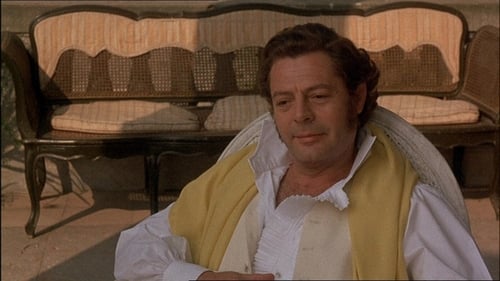
Gioacchino
Italia, 1816. Los "carbonarios", un grupo revolucionario que sigue las teorías de Babeuf (1760-1797), intenta resistir los ataques del absolutismo. Cuando uno de ellos, el viejo Fulvio, de origen noble, enfermo y cansado y, además, perseguido por la policía, busca refugio en la casa familiar y se plantea empezar una nueva vida, alejada del compromiso político que ha arruinado sus ambiciones personales, sus correligionarios lo presionarán para que siga contribuyendo a la causa.

Michel
A girl, whose father is from Greece, studies ancient art in France. The film was made for television but never broadcast for political reasons related to its portrayal of Greeks. A work print was screened in Belgium in 1971, and the film is now available in reconstructed form.
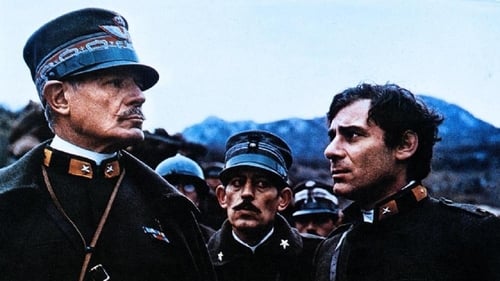
General's Aide (uncredited)
Drama antibélico. Durante la Primera Guerra Mundial (1914-1918), en la frontera italo-austriaca, las tropas italianas sufren una estrepitosa derrota al atacar posiciones austriacas. El resultado es un motín de las diezmadas tropas italianas. (FILMAFFINITY)

Producer
A poetic documentary about the island of Santorini.

Director
A poetic documentary about the island of Santorini.

Thirty-year-old lower middle class Dimitris, faint-hearted and not particularly ambitious, is ready to jump at the opportunity that will get him handsomely provided. He wavers between yesterday, the German occupation nightmare and his love debut with a neighbour and contemporary, fluid reality. He meets Thaleia, a rich woman his age, who frequents the same night club as him, but his daily routine is invariably the same. The closure of the small industry in Drapetsona, where he used to work for the last 8 years, and his relationship with Maria confront him with a different reality. Maria is a progressive, evening school teacher, full of dreams.
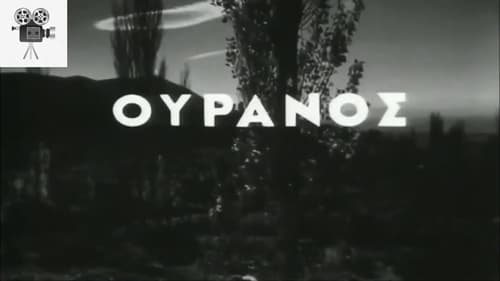
During the cold spring of 1941, with Greece already under German occupation, a long-suffering squad of war-battered soldiers receives orders from the headquarters in Athens to fall back, leaving behind the Albanian Front. As the men retreat through the snow-covered landscapes of the bomb-scarred Greek countryside, the terrifying certainty that nothing will ever be the same again crushes their weary human souls.

narrator
The film depicts all forms of traditional fishing and the life of fishermen of the Molyvos community on the Greek island of Lesvos, as it transposes us to island life of 1961, through a series of images from another era. Fishermen sail in the open sea on a purse seine.
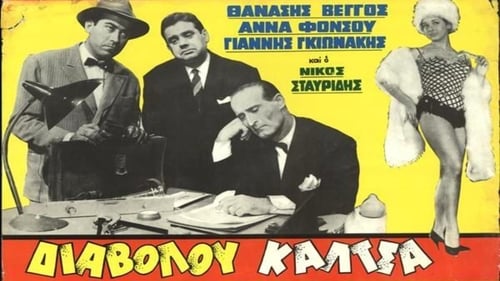
police officer
Tonis and Rena are loved, but their uncles have objections, as they are deadly competitors in the field of swimwear marketing. Rena's uncle promotes a modern swimsuit, while Toni's uncle is a fan of the classic line. The two young men decide to steal ..
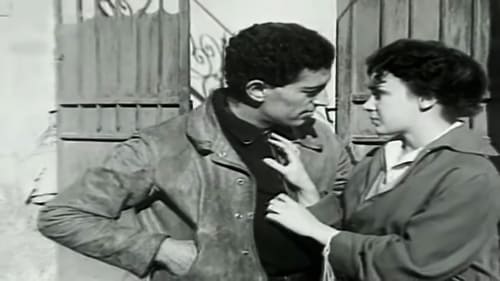
Nikos
Two young people are trying to make their common life although have to face the obstacle of an authoritarian mother. The young man, trying to overcome his financial difficulties, will be involved with a suspected man in a hypothetical big bay.











